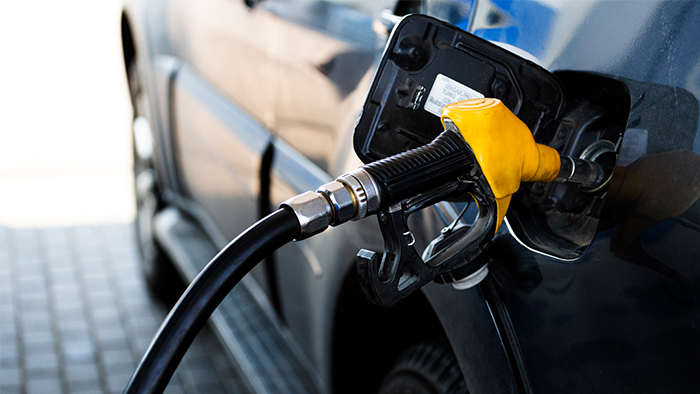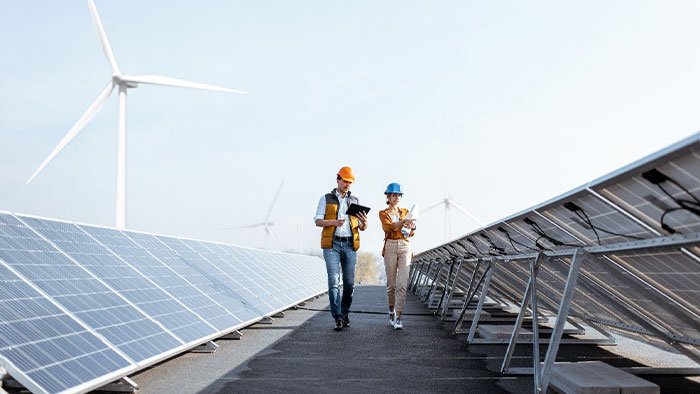Gasoline and Fuel Dealers
This area covers retail gasoline and fuel stations (gas stations). It does not include vehicle maintenance or automotive products which are covered in the RCC Vehicle Department page. The main environmental issues related to the management of petroleum products, such as gasoline and diesel fuel, include air emissions, petroleum storage tanks, emergency planning, and spill prevention/response. This resource does not cover fire code compliance at gas stations.
COMPLIANCE CONSIDERATIONS
The operation of gas stations is regulated by federal, state, and local environmental authorities. Regulatory and operational requirements for retail gas stations must be reviewed on a state by state basis, as each state has its own regulations. In addition, many states have compliance guidance specifically for retail gas stations.
Underground Storage Tanks (USTs)
Most gasoline stations use USTs for the storage of petroleum products. A UST is federally defined as a tank that has at least 10 percent of its volume underground. While USTs are federally regulated by EPA under 40 CFR Part 280, 281, and 282.50-105, most requirements are state and local. The EPA has information on state programs. Requirements can include permitting, training, reporting, and Spill Prevention, Control, and Countermeasure (SPCC) Plans. The RCC Storage Tank page has more information.
Air Emissions

Under the Clean Air Act, EPA established National Emission Standards for Hazardous Air Pollutants (NESHAP) for gasoline dispensing facilities (GDF) (40 CFR 63, Subpart CCCCCC), which includes GDFs at service stations, convenience stores, and rental and fleet service centers. EPA has a summary of the rule in the Controlling Air Emissions from Gasoline Dispensing Facilities brochure. Requirements vary based on the monthly throughput of the facility and relate to, among other things, minimizing spills, tank filling, vapor balance systems, and reporting.
States also have air emissions regulations, which can include requirements relating to permits, vapor recovery equipment, and reporting. These requirements may be more stringent than federal requirements, especially in non-attainment areas (areas that do not meet federal air quality standards).
Emergency Planning
Under the Emergency Planning and Community Right-to-Know Act (EPCRA), retail gas stations may have to report to their State and Local emergency planning committees and the local fire departments on either a Tier I or Tier II inventory report and maintain safety data sheets.
A retail gas station with the capacity to store 10,000 pounds (which corresponds to approximately 1,400 gallons of diesel or 1,600 gallons of gasoline) or more in aboveground tanks must report the total gallons of gasoline or diesel fuel at the facility, including any that is stored entirely underground. In other words, should the facility trigger either an aboveground or underground threshold, reporting of the total gasoline or diesel fuel at the facility is required.
The EPA provides information on EPCRA hazardous chemical storage reporting and Tier II form and instructions. Reporting requirements can differ by state, although most require the Tier II form.
Spills and Waste Petroleum Products
Preventing spills and leaks is an important part of environmental compliance at gas stations, and it is especially important to keep petroleum out of water bodies. Regulations related to aboveground and underground storage tanks are designed to help prevent spills and include Spill Prevention, Control, and Countermeasure (SPCC) Plans and spill reporting requirements (which are discussed on the RCC Storage Tank page).
Good management practices are critical for preventing spills and potential contamination of soil and water. Petroleum products should never be disposed on the ground, in a storm sewer, street drain, or other water body. Also, water should generally not be used to wash away petroleum spills, as this can contaminate nearby soil or water; instead, a dry oil sorbent should generally be used. In addition, cleaning small spills at the dispensers using rags or absorbents should be routine.
If a spill occurs, safely stop the spill immediately. Contain and recover the spilled material by spreading a sorbent material such as sorbent pads, kitty litter, sand, straw, or sawdust to stop the flow and soak up the petroleum from the pavement. If you use granular sorbent, such as kitty litter, use plenty and work it vigorously to absorb all of the gasoline or fuel oil. Collect the contaminated sorbent material and put it in a closed container. Used petroleum spill cleanup materials or products cannot be put in the regular trash. They should be disposed of as special or hazardous wastes, depending on the products cleaned up and state regulations (see the RCC Hazardous Waste page).
Engaging customers is an important aspect of spill control. Signs at pumps may be useful to instruct customers not to top off tanks and to notify employees in the event of a spill.
Good site design and stormwater management can help keep spills out of drains, catch basins, the soil, and downstream water bodies. Stormwater management is discussed on the RCC Water page.
Used Filters
Gasoline dispenser fuel filters could potentially be regulated as hazardous waste, although this may not be the case if the filters have been drained, are no longer capable of releasing liquid, and/or are sent for recovery of metal (e.g., from the filter housing). State and local rules may vary.
Used Oil
There are specific requirements for the storage and handling of used oil. These are covered in the RCC Other Regulated Waste and RCC Vehicle Sales & Maintenance pages.
SUSTAINABILITY
Sustainability at a gas station starts with preventing petroleum spills and keeping petroleum contamination from soil and water. This requires good management practices and keeping a sustained focus on strong environmental performance. Gas stations can also be designed using green building strategies to minimize water and energy use and, importantly, to reduce or eliminate stormwater runoff.
One sustainability area where gas stations may have a major role is in offering alternative fuels such as biodiesel, ethanol, hydrogen, natural gas, and propane. The U.S. Department of Energy maintains an Alternative Fuels Data Center, which includes a database of relevant laws and incentives (which can include incentives for gas stations to offer alternative fuels).
KEY LINKS:
- EPA Preventing Spills And Leaks At Gas Stations
- EPA Report Spills And Environmental Violations
- EPA Controlling Air Emissions From Gasoline Dispensing Facilities
- EPA Gasoline Dispensing Resources
Related Content
Spill Reporting Matrix
Summary of state requirements for reporting spills of oil or hazardous substances, including reporting quantity and contact information.
Hazardous Waste Variations by State Matrix
Overview of state variations in hazardous waste regulations under RCRA, including hazardous waste characteristics, thresholds, and universal waste.
Tags
-
Hazardous Waste
-
Storage Tanks
-
Air



